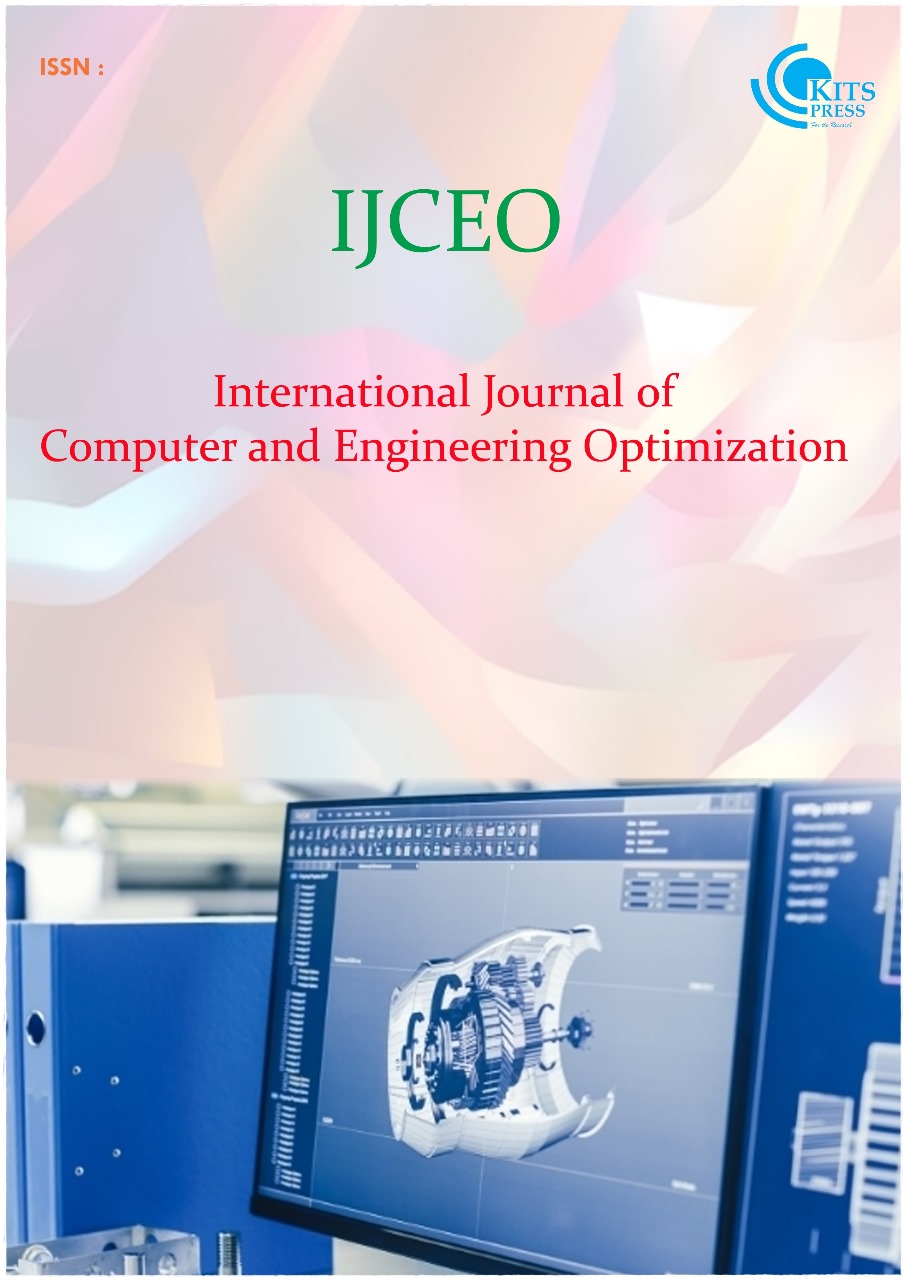International Journal of Computer and Engineering Optimization - IJCEO
About the Journal

Internationl Journal of Computer and Engineering Optimization (IJCEO) is a scholarly peer-reviewed journal that publishes modern researches and innovation.
About Internationl Journal of Computer and Engineering Optimization :
International Journal of Computer and Engineering Optimization (IJCEO) is an interdisciplinary Engineering journal which serves the large technical community concerned with computer based quantitative computational methods of optimization, and their application to engineering planning, design, manufacture and operational processes. The policy of the journal treats computer science techniques and optimization as technical improvement and innovation in engineering domains. Algorithms for numerical optimization are therefore mainstream for the journal, but equally welcome are papers which use the methods of operations research, Decision Support, Statistical Decision Theory, Systems Theory, Logical Inference, Knowledge-Based Systems, Artificial Intelligence, Information Theory, Quantum Computing and Quantum Information Processing, and all methods which can be used in the quantitative modelling and optimization of the decision-making process.
Machine Learning and Artificial Intelligence: Deep learning for computer vision, Natural language processing and sentiment analysis, Reinforcement learning for robotics, Explainable AI and model interpretability.
Cybersecurity: Intrusion detection and prevention systems, Threat intelligence and threat modelling, Secure software development and code analysis, Blockchain-based security solutions.
Data Science: Big data analytics and data mining, Predictive modeling and data-driven decision-making, Streaming data processing and real-time analytics, Privacy-preserving data sharing and analytics.
Cloud Computing and Distributed Systems: Resource allocation and load balancing in cloud environments, Edge and fog computing for IoT applications, Distributed ledger technologies (e.g., blockchain), Serverless computing and microservices architecture.
Software Engineering: DevOps and continuous integration/continuous deployment (CI/CD), Software quality assurance and testing automation, Requirements engineering and software architecture design, Agile and lean software development methodologies. Wireless Communication: 5G and beyond wireless networks, IoT and M2M communication, Cognitive radio and spectrum sensing, Beamforming and massive MIMO technology.
VLSI Design and Embedded Systems: Low-power VLSI design techniques, Reconfigurable computing systems, Hardware security and trust, FPGA-based accelerators for AI applications.
Antenna Design and RF Engineering: Phased-array antennas and beam-steering technology Compact and wearable antennas, RF circuit design for wireless devices, Antenna miniaturization and efficiency improvement.